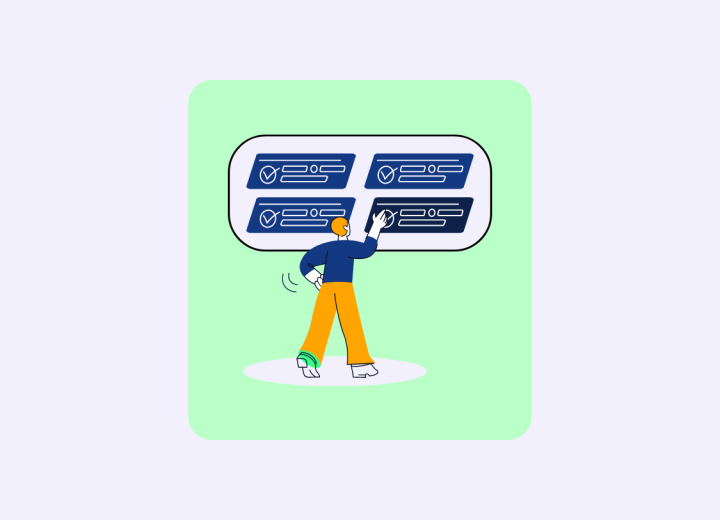When discussing case interviews you often hear that you should not use standard business frameworks and concepts at all because they just don’t fit the specific case question and interviewers don’t like it when candidates use standard frameworks to solve cases. However, when challenging these shallow, generalized, and popularized statements, there aren’t any of those arguments remaining on the table. In this thorough article about case interview frameworks, you will learn how to structure cases using frameworks. On top of that, Robert introduces you to the most common case interview frameworks in detail and how to use them during your interview.
Case Interview Frameworks – Most Common Frameworks
Before getting into detail about how to use frameworks during your case interview, it is important to have a basic understanding of what case interview frameworks are. All in all, case interview frameworks describe different approaches and methods to solve business problems in a structured and methodical way. By using frameworks, the candidate is able to break down a complex problem into its fundamental components. You should know the most common types of cases in order to determine which might be a suitable framework you can apply.
It is most definitely true that you can't crack a realistic interview case by relying solely on standardized frameworks – but all those business frameworks and concepts are extremely helpful templates that you can and even should put into your toolbox and use whenever appropriate (if not to the full extent, at least partly!). Such a standard business framework is just a tool – and the tool itself is rarely good or bad, it mainly depends on how and for which purpose you use it.
At the same time, for basically all of my coaching candidates, getting the case interview’s structure right is the largest issue in cracking case interviews. As this is a huge pain point for case interview candidates, it's worth looking more closely at this matter. And in addition, you might have heard the term "ABS" (Always Be Structured) – even though McKinsey is the pickiest one when it comes to structuring, all top consulting firms have a very strong focus on being rigidly structured all the time in your interviews.
For looking more closely at structuring case interviews, let's distinguish 2 parts of a typical case interview where frameworks usually apply:
- Structure for the overall case at the beginning of the case interview
- Answering specific questions in later stages of the case interview
Structure for the Overall Case at the Beginning of the Case Interview
This is when you typically need to develop an overall structure on how you want to tackle this case. Interviewers often ask something like "What are the issues you need to consider here?" or "Let's assume you are the project manager of this consulting assignment – which areas would you like to investigate?".
It is highly unlikely that you will be able to fit a realistic case interview question into a standard framework – if it would be that easy, nearly all candidates would make it into the consulting firms, and clients could solve their business problems without paying millions of dollars to consult firms by simply applying a standardized framework.
So, whatever your approach will be, it needs to be very flexible because you will need to adapt it to a huge extent to your specific, individual interview question. And yes, it is your approach that needs to be flexible to make it fit the case question, and not the other way round.
In general, I can see two different approaches for this stage of the case interview:
Approach #1: Get your hands on some overall case interview structures. I also find it incredibly difficult to remember completely different frameworks for different case types, and I am sure that given a high-pressure interview situation it is quite likely that you start mixing up things and forget about specific parts of the structure.
Therefore, I put together an Integrated Business Framework which is quite MECE (mutually exclusive, collectively exhaustive) and fairly easy to remember at the same time, since it follows a common-sense approach without the need to learn it by heart, but remember it based on its inherent logical flow. This Integrated Business Framework is the only thing you need to remember for tackling the most common case interview types and will even serve as an excellent basis for all other case types as well – since you don’t learn it by heart but start to think like a consultant when approaching tough business challenges.
Approach #2: Based on your case interview experience (i.e. having solved dozens of case interviews and having read through even much more of them) you can also try to develop the first level of your case interview structure (or in other words, the main areas or buckets you want to investigate) 100% individually from scratch. It probably really takes a lot of experience to do this well – but the good thing is that you can easily combine this approach #2 with approach #1 at any time!
Whatever approach you are using, this will mainly get you to the first and second levels of your structure. However, this won’t be enough to impress your interviewers – depending on the specific case question, it is usually favored to have at least one more level of structure.
And exactly for this additional level, knowing the most common business frameworks and concepts is extremely helpful to all candidates. It is just so much easier to further structure your case interview if you don't have to start from scratch but can apply existing frameworks and concepts. And even though you might be able to use maybe only 60% or 80% of a framework and need to adapt it to make it fit the specific question, you are nevertheless already far ahead than if you would need to develop all that from scratch.
Given the high mental pressure and time pressure in a consulting case interview, it is extremely difficult even for the best candidates to come up with the right issues, and at the same time remain structured in a MECE way – this is just another reason highlighting the advantage of knowing the most important business frameworks and concepts, as they will not only help you to come up with a structure at all but keeping it MECE and saving precious time in the case interview as well.
Answering Specific Questions in Later Stages of the Case Interview
For answering specific questions later on in the case interview, it is as important to remain structured in whatever you say as at the beginning of your case. Sometimes it might be well enough to use internal vs. external, short-term vs. long-term, pro vs. contra, and similar basic structures, but more often than not this will not differentiate you from other candidates (merely solving a case is usually not enough, you need to impress your interviewer by clearly standing out from the crowd of other applicants).
Remember, being structured is not only required at the very beginning of your case, at which you usually develop an overall framework for approaching it but also at any point in time during the case.
However, coming up with a solid framework on the fly at later stages during your case (at which you don’t have the possibility to take a minute to think about it, but an answer is expected immediately) is rather difficult for most candidates. The good news: it’s not expected/required that you come up with a highly sophisticated, fully-fledged, multi-layer framework. The most important thing is being structured – by using any structure at all you are scoring already 80+% of the very best answer.
For this reason, simple and easy-to-use mini-frameworks should be in the toolbox of any applicant. The most common mini-frameworks are:
- Internal vs. external
- Long-term vs. short-term
- Quantitative vs. qualitative
- Strategic vs. operational
- Financial vs. non-(directly-)financial
- Cost vs. benefit
- Pros & cons
- 2 x 2 matrix (high vs. low)
- Priority 1 vs. 2 (vs. 3)
- Tangible vs. intangible
- Direct vs. indirect
Of course, there are countless frameworks you can use to structure a case. We have picked out the most common case interview frameworks for you to download. A side tip: if you are familiar with the frameworks, why not apply them to a few of our cases from our case library?
Financial Concepts & Frameworks
Profitability Frameworks – Revenue & Cost Analysis
Profitability case interview questions are the most frequently used case types during case interviews for management consulting roles. You will have to find out the root cause of their declining profitability. Examples are falling sales, rising costs, or both. Your task will be two-fold: performing a structured and quantitative analysis of the data to isolate the problem and then finding a promising solution for the problem. In our profitability framework cheat sheet, you will find everything you need to analyze the revenue and costs of a company.
Financial Ratio – Profit Margin, ROI, CAGR & NPV
Knowing how to calculate the most important financial ratios is a must for every aspiring business consultant. The four most important ratios are profit margin, return on investment (ROI), compound annual growth rate (CAGR), and net present value (NPV). We explain these most important calculations with simple examples in our financial ratio cheat sheet.
Business Concepts & Frameworks
Company Strategy – SWOT Analysis & McKinseys 7 S'
Most case interviews are about developing a suitable strategy for a company. The SWOT analysis serves as a basis for this by undertaking a solid analysis of the current and future situation of the company. McKinsey’s 7S framework helps to analyze a company’s organizational design, taking into consideration seven key internal elements of an organization. Find out what a SWOT analysis looks like and what McKinsey’s 7S are in our company strategy framework cheat sheet.
Market & Customers – BCG Matrix, Ansoff Matrix & 4 P's / 4 C's
In order to advertise strategically and plan product mixes for a company, it is necessary to find potential customers and identify the target markets. There are different approaches and we have selected the 3 most common ones: the BCG matrix to get an overview of a company's products and to derive strategies for the products, the Ansoff Matrix is a product-market matrix that enables to develop a business strategy focused on growth and the 4 P's and 4 C's frameworks.
Competition – Competitive Analysis, Porter's 5 Forces & Benchmarking
From a strategic point of view, each company wants to be competitive in the marketplace by creating and maintaining a competitive advantage. As a competitive advantage is always relative to the competition, a solid analysis of the competitive environment is the basis for creating and maintaining a competitive advantage. The three frameworks that we take a closer look at are the competitive analysis in general, Porter's 5 forces, and benchmarking.
Additional Concepts & Frameworks – Decision Tree, Top-down vs. Bottom-up, Supply & Demand, Break-even Point & Market Types
In this framework cheat sheet, we have summarized a few more important and helpful concepts for you. Here you can find everything about the following frameworks: decision tree, top-down vs. bottom-up, break-even point, supply & demand, and market types. It is definitely helpful to also keep these common concepts in mind when solving your next case.
Continue to Learn




